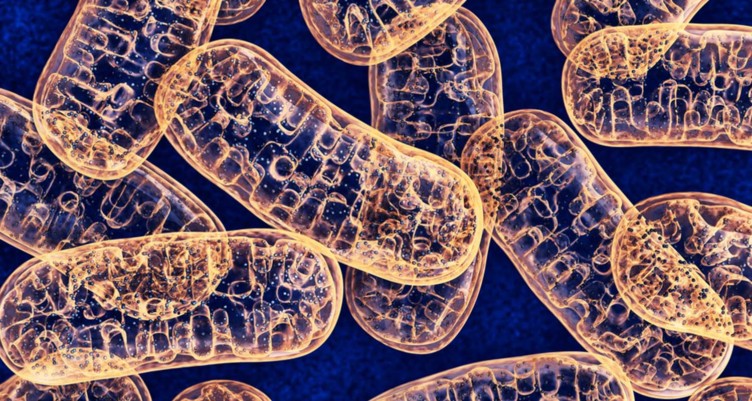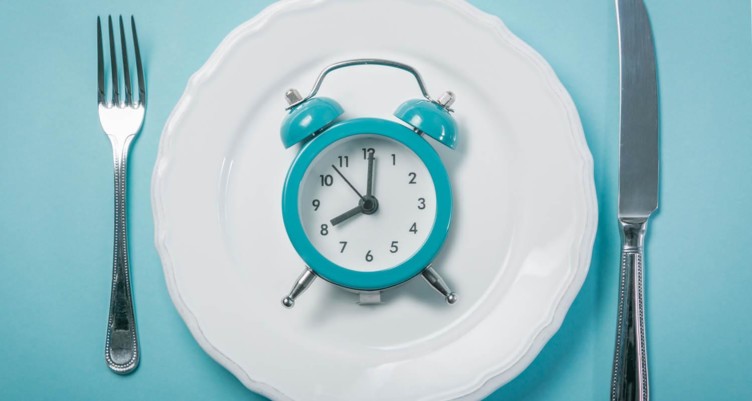Everything You Need to Know About Autophagy

- Autophagy means “self-eating.” It’s a detox process your cells undergo to clean out damaged cellular components, including organelles and proteins, and regenerate new ones.
- While cells already perform autophagy on their own, you may be able to increase autophagy and its benefits with diet and exercise.
- Early research indicates autophagy may reduce inflammation, prevent or delay the development of neurodegenerative disease—and even increase longevity.
Spoiler alert: Juice cleanses and detox teas don’t hold a candle to your body’s ability to detox. One of the ways it does this is through a natural process called autophagy, which is how your body cleans up cellular junk and helps keep your systems humming. Early research suggests you can actually increase autophagy, which may reduce inflammation, protect against disease and even support anti-aging.
And if you’re wondering how to induce autophagy, there are several ways to do so that don’t necessarily involve caloric restriction or taking any special supplements. In fact, combining autophagy fasting with the ketogenic diet can usher along the process smoothly.
What is autophagy?

Although the definition for autophagy means “self-eating,” rest assured, this is a good thing. Autophagy is the method by which your cells clean out damaged cellular components, helping you produce healthier cells.[1]
Over time, our cells accumulate a variety of dead organelles, damaged proteins and oxidized particles that can clog the body’s inner workings. This accelerates the effects of aging and age-related diseases because cells aren’t able to divide and function normally.[2] (Note that autophagy is not to be confused with apoptosis, which is programmed cell death, a different process than the cleanup of the degeneration within the cells.)
This lysosome-dependent cell-regeneration process is critical to your overall health.[3] In fact, the dysfunction of autophagy has been linked to several neurodegenerative disorders, including Alzheimer’s disease.[4]
Because some of our cells, like those in the brain, need to last a lifetime, the body has a way of ridding itself of those faulty cell components and damaged proteins and defending itself naturally against disease.
Enter: autophagy.
What is the process of autophagy?

According to Naomi Whittel, author of the autophagy-centric book “Glow15: A Science-Based Plan to Lose Weight, Revitalize Your Skin, and Invigorate Your Life,” this is how autophagy works:
“Think of your body as a kitchen. After making a meal, you clean up the counter, throw away the leftovers and recycle some of the food. The next day, you have a clean kitchen. This is autophagy doing its thing in your body, and doing it well,” writes Whittel.
“Now, think of the same scenario, but you’re older and not as efficient. After making your meal, you leave remnants on the counter. Some of it gets into the garbage, some of it doesn’t. The scraps linger on the counter, garbage and recycling bin. They never make it out the door to the dumpster, and toxic waste starts to build up in your kitchen. There’s food fermentation on the floor and all kinds of nasty smells wafting out the door. Due to the onslaught of pollutants and toxins, you’re having a hard time keeping up with the daily grime. This scenario resembles autophagy that isn’t working as well as it should.”
Autophagy usually hums along quietly behind the scenes in maintenance mode. It plays a role in the way your body responds to periods of stress, maintains balance and regulates cellular function.[5]
Plus, you can’t forget about your mitochondrial health. Through a process called mitophagy, damaged mitochondria get subjected to autophagic degradation. [6]
There’s evidence that when you trigger autophagy, you slow down the aging process, reduce inflammation and boost your overall performance. To help your body resist disease and support longevity, you can increase your autophagy response naturally (more on that later).
Health effects

While autophagy is conserved from fruit flies to humans, it has evolved in higher organisms. A study from Newcastle University found that this ability is due to small adaptations in a receptor known as p62 that is one of the keys to starting the autophagy pathway within the cell.[7]
The activation of p62 takes place when the cell senses the presence of reactive oxygen species (ROS), the metabolic byproducts that cause cell damage. P62 proteins quickly get to work to remove all the damaged parts that have accumulated in the cell so they’re better equipped to handle biological stress. Homeostasis (balanced cellular function) and vibrant health are a direct result of p62 protein doing its thing during autophagy.
And ultimately, the autophagic process of removing damaged cells’ interior organelles and replacing them with new ones is what keeps you healthy.
So, the research team from Newcastle University set about identifying the part of human protein p62 that allows for the sensing of ROS. They then created genetically modified fruit flies with “humanized” p62. The result? The “humanized” flies survived longer in stressful conditions.
“This tells us that abilities, like sensing stress and activating protective processes like autophagy, may have evolved to allow better stress resistance and a longer lifespan,” says the study’s lead author Dr. Viktor Korolchuk.
The process sounds positive, but how do you really benefit from autophagy?
Autophagy benefits

We’re just beginning to understand how autophagy works in the body, and what we know so far is primarily based on rodent and in vitro studies studies. Mice aren’t humans, but the evidence is compelling. It states that autophagy benefits may include:
- Controlling inflammation, slowing down the aging process and protecting against neurodegenerative diseases.[8][9]
- Working to fight infection and supporting immunity.[10]
- Helping to extend life by improving the metabolic fitness of cells through the removal of damaged organelles and proteins.[11]
How to induce autophagy

There are several ways you can turn up your body’s autophagy process (that have nothing to do with juice cleanses). To cleanse your cells and reduce inflammation, and generally keep your body running in tip-top shape, take these four simple steps to increase the autophagy process.
Keep in mind that because autophagy is a response to stress, you need to trick your body into thinking it’s a little bit under siege. Here’s how…
Fasting and calorie restriction
Research suggests that autophagy and fasting go hand in hand, as you can ramp up the autophagic process by limiting your eating window.[12] [13] So, by simply not eating for an extended period of time, you can kickstart your body’s natural detoxification process.
Related: The Complete Intermittent Fasting Guide for Beginners
Exercise
Another reason to hit the gym: In human and rodent studies, alike, exercise has been shown to help with the induction of autophagy.[14][15] In a 2018 study, 12 men completed an eight-week exercise program consisting of continuous state cycling or high-intensity interval cycling for three days per week.[16] The researchers concluded that both styles of training supported autophagy.
Additionally, Whittel emphasizes a “less is more” approach to exercise for inducing autophagy and favors high-intensity interval training (HIIT). “Weightlifting and resistance training exercises for 30 minutes every other day is the best way to activate autophagy. It’s about getting in that short-term, acute stress, because autophagy loves the stress of interval training.” Whittel applies interval training to her walks by alternating between a brisk and slow pace.
Curcumin
Curcumin, the active compound in turmeric, has been shown to regulate autophagy in tumor cells via signaling pathways. [17] A recent study also showed curcumin treatment markedly induced autophagy and significantly inhibited the growth of human thyroid cancer cells.[18]
How else can you benefit from curcumin? Research shows it induces autophagy to protect vascular endothelial cell survival from oxidative stress damage.[19]
Foods that promote autophagy
Whittel stresses the importance of consuming quality fat to activate autophagy. “Fat needs to be the dominant macronutrient in our diets because it’s different from protein. Whereas protein can turn into a carb and become a sugar, [fat cannot],” she says.
Specifically, a keto diet gives you an edge when it comes to autophagy. The shift from burning glucose (carbs) to ketones (fats) mimics what occurs naturally in a fasted state—and this may increase autophagy in its own right.[20]
How long do you need to fast for autophagy?

When does autophagy start if you’re fasting? In a 2010 study, mice fasted for 24 or 48 hours to promote autophagy.[21] It’s not clear how that translates to humans (yet), but we do know that intermittent fasting is associated with weight loss, insulin sensitivity and lower disease risk.
The bottom line: Autophagy is a natural method for cleaning out damaged cell components, like organelles and proteins, and regenerating new ones. If you want to experience its benefits, you can induce autophagy through fasting and exercise. Plus, you can further support this “self-eating” process by following the keto diet. Ultimately, though, autophagy and fasting go hand in hand, so the best way to get started is by limiting your eating window.
Not sleeping well lately? Learn how to improve your sleep habits, so you can get much-needed, quality rest, and take advantage of the benefits of autophagy.
Give us 30 days and we'll give you more energy. Get tips, recipes and more that will help you become the best version of YOU.
This is an update of an article originally published January 2018.



